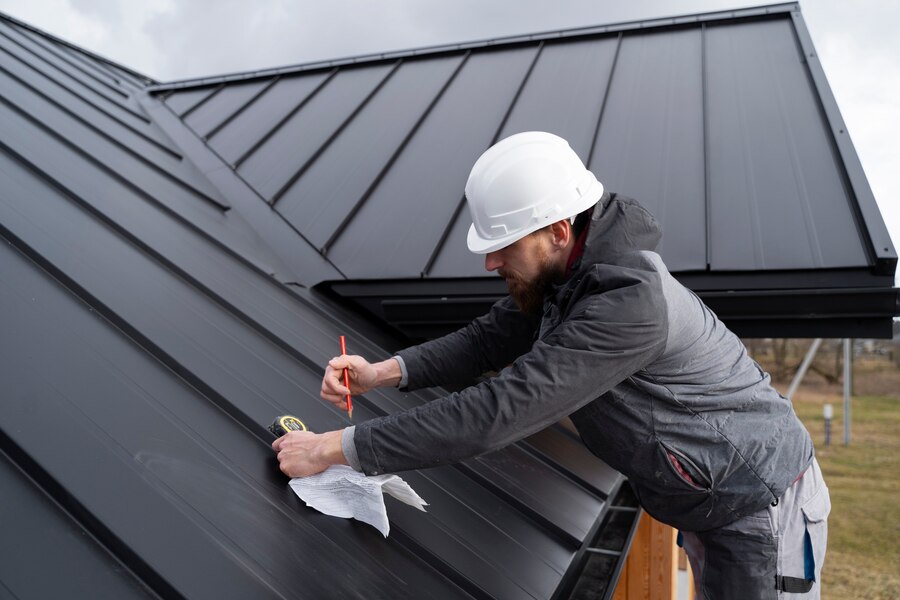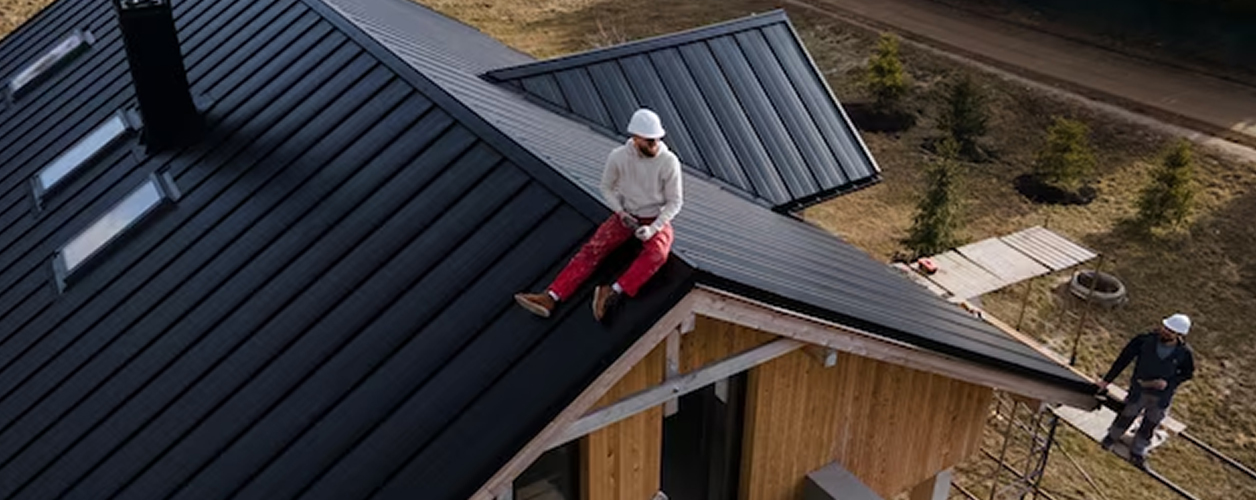Get free quotes within minutes
5 Things You Need To Do Before Signing A Roofing Contract

What To Do Before Signing A Roofing Contract: Basic To Fundamental Details
A roof is more than just a protective cover over your home—it’s a crucial component that ensures safety, energy efficiency, and structural integrity. Whether you need a minor repair, a full replacement, or a brand-new installation, roofing projects require skilled expertise to ensure long-lasting results. This is where professional roofers come in. Experienced roofing contractors not only assess the condition of your roof but also recommend the best solutions based on your budget and needs.
Hiring the right roofer is essential, as a poorly executed job can lead to costly repairs, leaks, and structural damage. A professional roofer offers expertise in material selection, weatherproofing, and compliance with safety standards, ensuring a secure and durable roof over your head. However, before you proceed with hiring a roofing contractor, it’s crucial to understand the importance of signing a well-structured contract. A roofing contract protects both you and the contractor by outlining project details, costs, timelines, and warranties.
In this guide, we focus on What to Do Before Signing a Roofing Contract to help you make an informed decision. By following these steps, you’ll ensure transparency, avoid unexpected costs, and choose a reliable company that delivers quality workmanship. Discover the foolproof way to tackle your roofing project! Get all on reading and signing a roofing contract. We'll walk you through important steps, like checking the roofing contract terms and conditions and the roof replacement contract. Plus, we'll share key questions to ask your roofer.
Understanding A Roofing Contract
- Basics Of A Roofing Contract: A roofing contract is a crucial agreement between a homeowner and a roofing contractor that consists of all the terms and conditions of roofing jobs outlined. This agreement safeguards all parties making sure that every area of the project is well defined including the timetable, the terms of the payment, the materials to be utilized, and the scope of the work.
- Fundamentals Of A Roofing Contract: This contract ensures that all parties are aware of their respective responsibilities and roles throughout the project. The components of a roofing contract include the scope of the work, materials to be utilized, warranties, project schedule, conditions of payment, and any other clauses that may be pertinent to the project. To prevent disagreements or misunderstandings throughout the project, these terms ought to be spelled out in the contract.
- Before Signing The Roofing Contract: It is imperative that before signing the roofing contract, you thoroughly study and comprehend every word of it. Homeowners should make sure that the contract appropriately reflects their expectations for the project and that the roofing contract terms and conditions are understood by them. Therefore, before signing the agreement, any disagreements or concerns should be discussed with the contractor, making sure that everyone is on the same page.
- Signing a Roofing Contract: Are you dreaming of a home? Understood what to do before signing a roofing contract. You tried to make your dream come true, but now it is the time to make some agreements in context. The most important one is the Roofing Contract. As a homeowner, it is important to carefully read over the contract before signing it to make sure that it is according to your demands. To protect your investment and make an informed decision, you must have an overview of the main terms and conditions.
What’s In A Roofing Contract?
Now the question arises, what does a roofing contract look like? In a roofing contract, homeowners should check for the following crucial components to make sure that it safeguards their investment and fulfils their demands:
- Detailed scope of work: Every work detail that will be done on the roof—like replacements, repairs, new gutter installation and downpipe installation, or upgrades—must be clearly mentioned in the scope of work.
- Payment plan: A reasonable payment schedule through which both the contractor and the homeowner benefit should be included in the roofing contract.
- Contingency plan in case of unforeseen circumstances: In case of unforeseen issues like the discovery of additional damage during the project or inclement weather, the roofing contract should outline a contingency plan.
- Materials and labour costs: This contract should also specify the materials that will be used for the project and the cost associated with it.
- Project timeline: This timeline outlines when each phase of the work will be completed.
- Guarantees and warranties: These are made by the contractor or the material’s manufacturer.
5 Things To Do Before Signing A Roofing Contract
You should take a few critical procedures before signing a roofing contract to guarantee the success and failure of your project. You can avoid future problems and disagreements by carefully considering these factors. These are the five essential things you must do:
- Look up and choose reliable contractors: Before signing a roofing contract to fix roof damage with local expert restoration, you should have the assurance that the contractors must be reliable. Investigate and find reliable contractors in your neighbourhood. Seek out the businesses that have a good track record, the necessary licenses and certifications, and satisfied clients.
- Examine the terms of the contract completely: Roofing contract terms and conditions must be read carefully before signing. Key information to pay attention to includes the project timeframe, scope of work, warranties, payment plan, materials to be used, and any provisions about unforeseen problems or scope adjustments.
- Communicate and document: Make sure that you and the roofing contractor have open lines of communication, throughout the entire process. Talk about your expectations, maintain a channel of communication, and pose questions openly to quickly handle any issues. Including any modification to the original agreement, all conversations and agreements must be recorded in writing.
- Compare several quotes: Do not select the first contractor you come across. Get estimates from three or more different roofers so you can evaluate costs, suggested completion dates, services and supplies.
- Check licensing and insurance: Make sure that the roofing contractor has the required insurance coverage and is properly licensed. For a trustworthy contractor, liability insurance and worker’s compensation both are necessary.
Questions To Ask Your Contractor
When choosing a roofing contractor, asking appropriate questions is crucial to make sure you are working with a knowledgeable and trustworthy expert. You should ask the following set of questions:
- Can you clarify any unclear aspects of the contract?
- Can you provide references and examples of past projects?
- Can you provide proof of insurance and licenses?
- What is the total cost of the project, and are there any potential additional charges?
- What materials will be used, and do they come with a warranty?
- What is the estimated timeline for project completion?
- How will unforeseen issues, such as hidden damage, be handled?
- Who will be responsible for obtaining permits and ensuring compliance with local building codes?
- What is the payment schedule, and are there any financing options available?
- How do you handle cleanup and disposal of old roofing materials after the project is completed?
Asking these questions will help you avoid hidden surprises, ensure quality workmanship, and give you confidence in your roofing contractor before signing the contract.
Wrapping Up
What to do before signing a roofing contract? Before you sign a roofing contract, make sure that you have done your homework, reviewed the contract, verified the license, compared many FREE roofing service quotes, verified the insurance, and kept open lines of communication. By carefully adhering to these instructions, you may raise the probability of a successful roofing project and reduce the possibility of problems along the road. Always put transparency, cooperation with your selected contractor, and documentation, to get the best outcomes first. Also, learning more about how to hire a reputable roofing contractor can increase the chances of a successful project, cost-saving and minimize potential issues for your home.
Capital Cities
- Roofing Contractors Services in Melbourne
- Roofing Contractors Services in Brisbane
- Roofing Contractors Services in Sydney
- Roofing Contractors Services in Adelaide
- Roofing Contractors Services in Perth
- Roofing Contractors Services in Canberra
- Roofing Contractors Services in Hobart
- Roofing Contractors Services in Darwin













